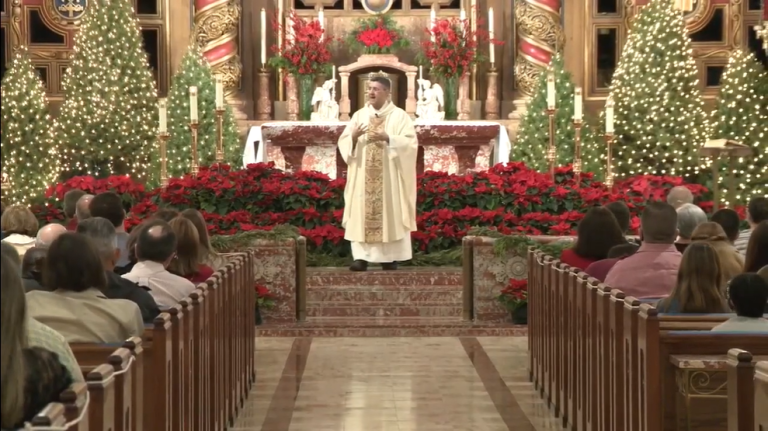When I thought and prayed about what to name this column, the same phrase kept coming to me: gratia plena. It comes from the angel’s words to Mary. “Ave gratia plena” — Hail, full of grace.
It’s St. Jerome’s best shot at a Latin translation, but the original Greek word that Luke used in his gospel is hard to translate. Kecharitōménē. It’s the feminine perfect passive participle of the verb charitóō, which means “to bestow grace upon.” It points to the fact that the amount of grace Mary received was “overflowing.” She was filled up and completed in grace, and this grace persisted.
Mysteriously, this also points to Mary as the New Eve, the Mother of the New Humanity, of the Church, of you and I. Mary, like Adam and Eve, was born immaculate. They all have an advantage that we don’t. And they all chose to do something different with it. Eve was rebellious, Mary was faithful. Adam was passive, and Mary receptive. She was sent to undo the knots caused by Eve. Too often we fall, just as our first mother did.
There’s a statue of Eve in my local art museum, it’s my favorite piece. She’s carved in white marble, she’s still naked, gazing into the distance, taking a small step, but limply covering herself with her hands, almost as if she isn’t sure the gravity of what she’s done just yet. The statue is displayed in front of a giant, floor to ceiling window, displaying the trees that hide our downtown skyline.
I often gaze upon my first mother with a mix of emotions: sadness, love, anger, but most of all empathy. If it were up to me, would I have made a better decision than she did?
My eyes stare at that statue in reflection. But my eyes stay on Mary for inspiration, for guidance. How inspiring, that God still loved Eve. How inspiring that He loved all of humanity enough to send us His Son, through His mother, the most perfect vessel.
I look at Eve and I can’t help but love Mary so much. Imagine how meek and humble, yet strong and courageous Mary was. The perfect blend of what a human person is meant to be. The less we sin, the more human we become. So just imagine what the perfect, sinless, human was like.
If the words of the angel are not easy to translate, surely they are not easy to imitate. This column is not an account of my quest to reach the impossible. Rather, kecharitōménē, gratia plena, “fullness of grace” — these words remind me to take comfort in the fact that, while I’ll never be as perfect as Mary was in this life, I can still find rest in her shadow and I can strive in small ways to be more like her. Gratia plena is my prayer that, one day, by following Mary as closely as I am able, she may bring me into the Light of her Son.
I’m taking steps in that direction, and I want to share them with you.
Sarah Rogers




